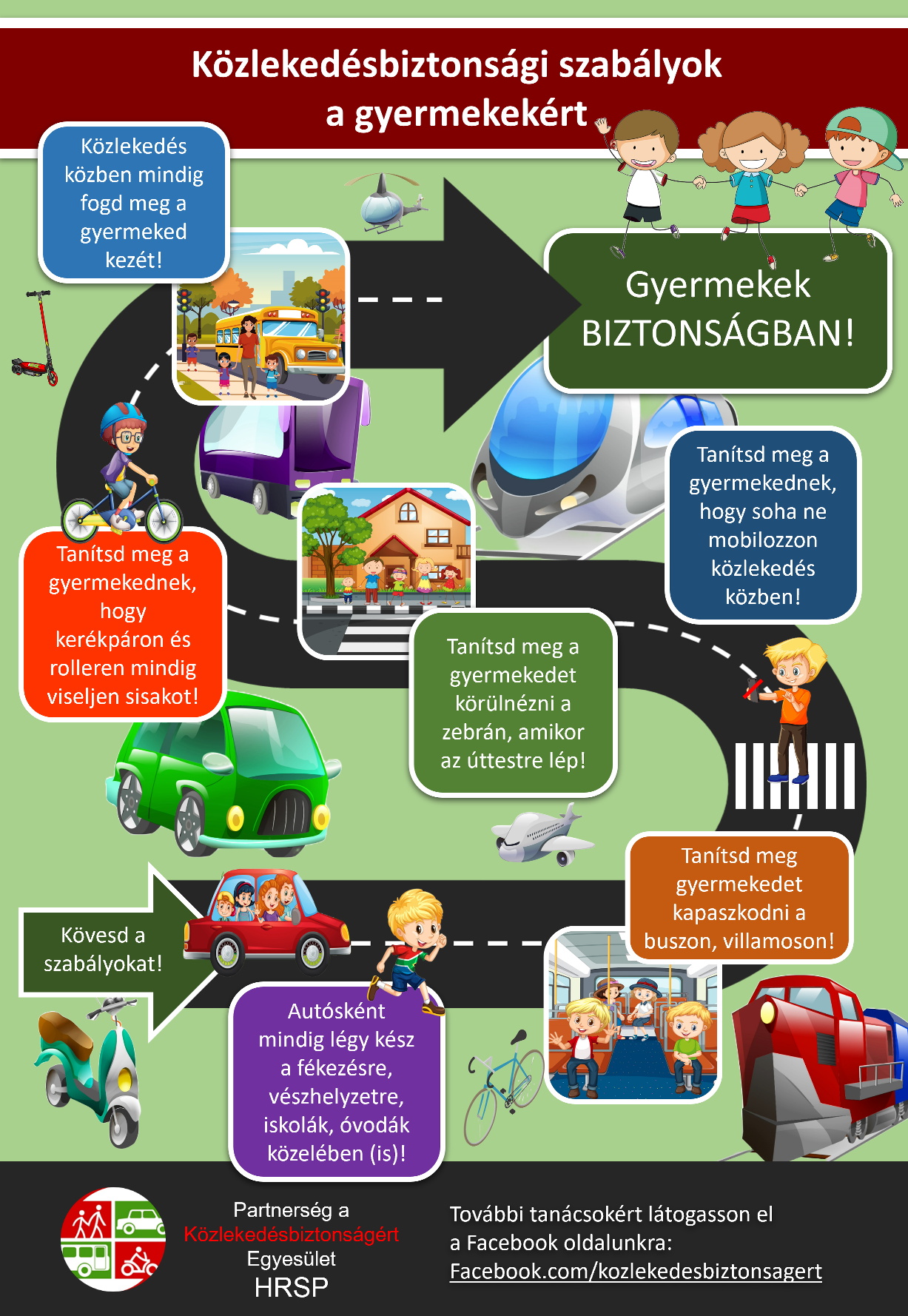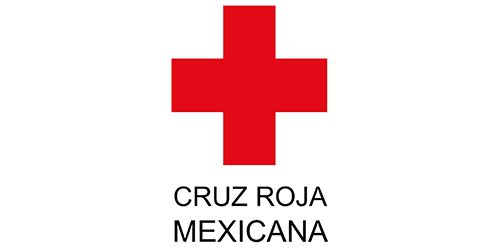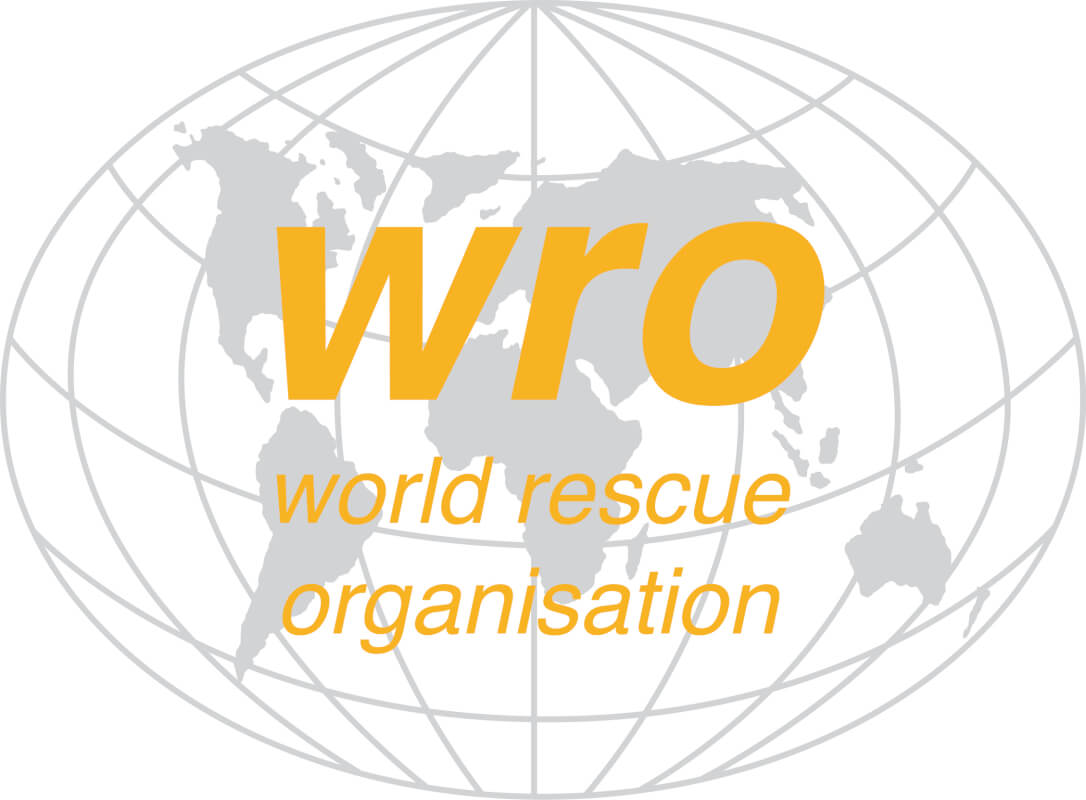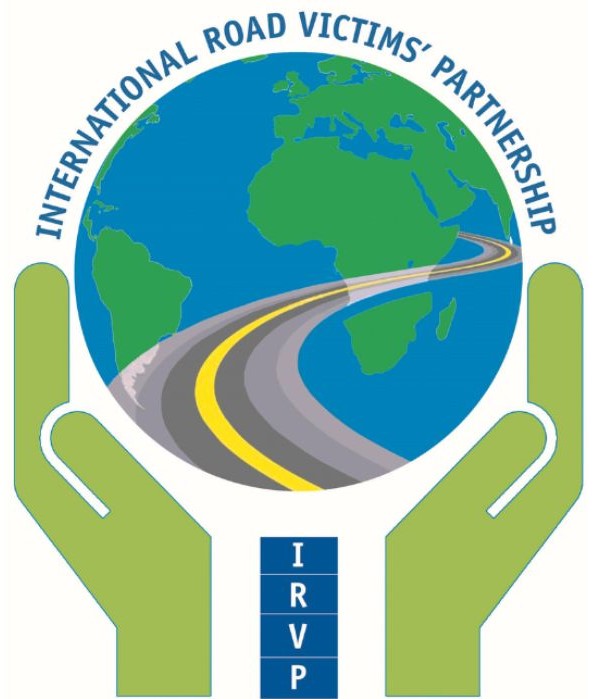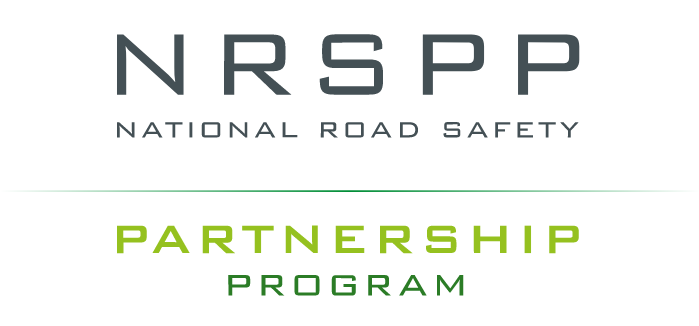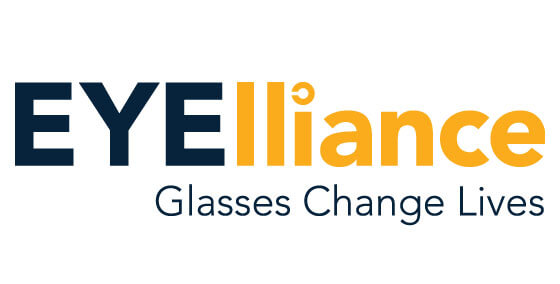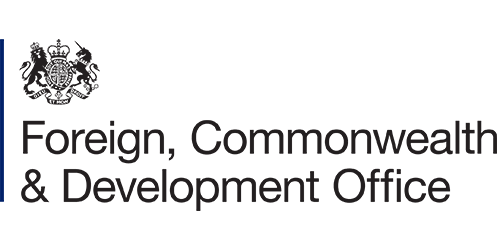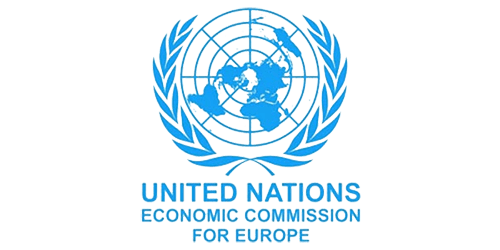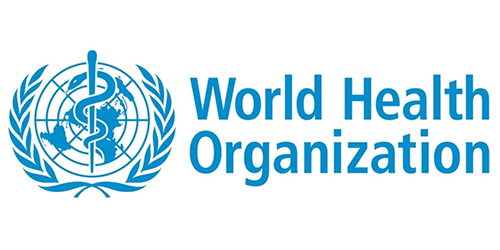
The European Traffic Safety Council (ETSC) recently highlighted a report from the VIAS institute which explained the increased risk that sport utility vehicles (SUVs) and pick-up vehicles create for pedestrians and cyclists. We know that often vulnerable road users are children and the risks these vehicles create are unacceptable.
The European Traffic Safety Council (ETSC) recently highlighted a report from the VIAS institute which explained the increased risk that sport utility vehicles (SUVs) and pick-up vehicles create for pedestrians and cyclists. We know that often vulnerable road users are children and the risks these vehicles create are unacceptable.
The study looked at all crashes in Belgium between 2017 and 2021 relating to 300,000 car passengers and vulnerable road users. One of the key findings related to the impact of pick-ups when involved in striking pedestrians and cyclists. For a pedestrian or cyclist hit by a pick-up, the risk of serious injury increases by 90 per cent and the risk of fatal injury by almost 200 per cent.
The risk of fatal injuries to vulnerable road users increases as the bonnet height of the vehicle hitting them increases. For example, a pedestrian or cyclist hit by a car with a bonnet 90 cm high runs a 30 per cent greater risk of fatal injury than if hit by a vehicle with a bonnet 10 cm lower.
The report also found that SUV occupants are less likely to suffer serious or fatal injuries than car occupants. Occupants of a car involved in a crash with an SUV have a higher risk of serious injury. The risk of serious injury decreases by 25 per cent for SUV occupants but increases by 20 per cent for occupants of a car involved in a crash with an SUV.
But these vehicles are not just causing serious road trauma to pedestrians and cyclists. In an International Energy Agency report released earlier this year, they reported that the average SUV consumes about 20 per cent more fuel than the average medium-sized car to drive the same number of kilometers. Fuel use translates directly into CO2, so the average SUV also releases, approximately, 20 per cent more carbon per kilometer driven.
There is an opportunity for governments to strongly discourage the purchase of vehicles that impose such serious risks for all of us. Additionally, the Global Road Safety Partnership (GRSP) calls on those purchasing vehicles for fleets to consider the impact of their vehicle choice on the safety of others and the environment.
Dave Cliff ONZM MStJ
Chief Executive Officer


The last issue of the Signpost included an editorial highlighting the need to put aside ‘common sense’ and focus on what works in reducing road crashes. It was argued that, too often, road safety initiatives are adopted because they sound like a good idea or are based on ‘common sense’, rather than being supported by sound evidence.
The last issue of the Signpost included an editorial highlighting the need to put aside ‘common sense’ and focus on what works in reducing road crashes. It was argued that, too often, road safety initiatives are adopted because they sound like a good idea or are based on ‘common sense’, rather than being supported by sound evidence.
The editorial prompted me to revisit a paper I wrote 25 years ago entitled When common sense just won’t do: Misconceptions about changing the behaviour of road users (see https://eprints.qut.edu.au/7295/). The paper examined the paradox that certain road safety measures popular with the general community had not proven cost-effective when subjected to rigorous evaluation. To demonstrate the point, the paper reviewed three road safety measures that had widespread community support in Australia at the time, but limited evidence of effectiveness, namely: intensive practical skills-based driver training; harsher traffic offence penalties; and the isolated use of mass media road safety campaigns.
While research relating to these three measures has continued over the last 25 years, I have yet to see any compelling evidence that they have become cost-effective despite their continuing popularity with the community.
Community support for measures like these appears to be based on their intuitive appeal, making it a matter of ‘common sense’ that they must be effective. However, on closer inspection, this intuitive appeal is often based on misconceptions about crash causation, the factors influencing road user behaviour, or ways of achieving behaviour change. For example, given that no one is born with the innate ability to operate a motor vehicle, it seems obvious to many that specialised driver training focusing on knowledge of the road rules and vehicle-handling skills should be effective in reducing road crashes.
However, the available evidence indicates that neither a lack of knowledge nor inadequate vehicle control skills are major contributing factors to road crashes. Rather, the evidence indicates that perceptual, cognitive and motivational factors are more likely to contribute to crashes, particularly among young drivers. Furthermore, research has demonstrated that it is difficult to modify the driving skills of the average driver in a permanent way, since specialised skills, such as emergency braking, tend to degrade quickly if not practised regularly.
Lastly, because crashes are relatively rare events, drivers come to realise that illegal or risky driving behaviours do not necessarily lead to crashes. In effect, their on-road experience builds durable behavioural patterns, which are difficult for driver training to modify.
Similar misconceptions underpin the intuitive appeal of harsher penalties. Public support for harsher penalties appears to be based on the belief that it is the severity of punishment which primarily motivates drivers to obey the law. Nonetheless, the evidence indicates that it is the perceived certainty of getting caught and punished, rather than the severity of the penalty, that has the greatest influence on road user behaviour. In lay terms, a harsh penalty will not seem that threatening to drivers if they perceive there is little chance of being caught and convicted for breaking a particular traffic law. This doesn’t necessarily imply that the severity of penalties is of no consequence. Rather, it confirms that it is the existence of penalties applied in a certain manner, combined with effective ‘anywhere, anytime’ enforcement, which is most crucial.
In the case of mass media campaigns, there appears to be a strong belief within the community that they are effective in raising awareness and improving attitudes, which in turn leads to positive changes in road user behaviour. However, while the media can undoubtedly influence attitudes, the link between attitude change and behaviour change is far from clear. For example, research has shown that changes in road safety attitudes don’t necessarily translate into changes in behaviour and that, in certain circumstances, people may first change their behaviour in response to a new road safety initiative (such as the introduction of random breath testing), which in turn brings about changes in community attitudes.
What the evidence is clear about, however, is that mass media campaigns are most effective when they support other measures, particularly traffic law enforcement initiatives like drink driving and speed enforcement programmes. Therefore, while mass media campaigns are unlikely to directly contribute to behaviour change, they can play an important role by supporting other measures, by creating a climate of opinion supportive of new measures, and by ‘signposting’ the need for behaviour change.
Two important implications emerge from case studies like these. Firstly, in order to achieve their objectives, road user safety initiatives need to be based on sound behavioural principles, rather than on ‘common sense’ or intuition. This is particularly important since there is a tendency for the public (and some decision-makers) to underestimate the complexities of human behaviour and to overestimate the effectiveness of education in improving road safety.
In contrast, the available evidence indicates that while education is generally a necessary factor, it is rarely sufficient (by itself) to motivate behaviour change. Secondly, road safety agencies need to actively promote the effectiveness of successful road safety measures. This will not only improve support for these measures, but assist in shaping community perceptions about safe behaviour, which may in turn contribute to the acceptance of new evidence-based initiatives.
Professor Barry Watson
Centre for Accident Research and Road Safety – Queensland (CARRS-Q)
Queensland University of Technology, Brisbane, Australia
Vice-Chair, GRSP
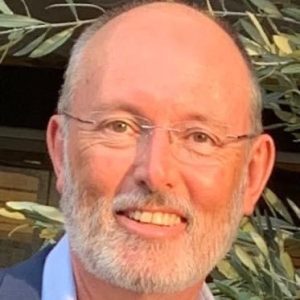
Professor Barry Watson is a global road safety expert based at the Centre for Accident Research & Road Safety – Queensland (CARRS-Q), Queensland University of Technology. Barry has over 35 years’ experience in road safety working for government, academic and civil society organisations. He has undertaken research into a wide range of road safety issues and delivered training courses to students and professionals around the world.
From 2008 and 2015, he was the Director of CARRS-Q and responsible for the overall operation of the Centre. From 2015 to 2017, Barry was the CEO of GRSP after which he returned to CARRS-Q to take-up a research professorship. However, he has continued his involvement with GRSP and is currently Vice-Chair of the GRSP Executive Committee.
The Global Road Safety Partnership (GRSP), together with the Asian Development Bank (ADB), the International Road Assessment Programme (iRAP), and the Asia Pacific Road Safety Observatory (APRSO), has won a 2023 Prince Michael International Road Safety Award, for their joint Road Safety Capacity Building Programme (RSCBP).
This innovative capacity-building programme focuses on building road safety capacity and technical knowledge among professionals in low- and middle-income countries. In particular, the RSCBP concentrates on embedding evidence-based road safety interventions into transport projects, and on the development of ‘system-based’ road safety projects.
The RSCBP was purposefully designed to engage participants in a series of linked capacity-building engagements to develop technical knowledge relating to the key road safety areas of focus and to translate this technical know-how into practical approaches that can be implemented to address road crash death and serious injury. The programme design aligns directly with the key pillars of action outlined in the Decade of Action 2011 – 2020 and the recommended actions of the Decade of Action 2021 – 2030. The topics of road safety management, safer road users and safer roads and roadside infrastructure are represented in both global plans and this training programme is structured to address the requirement to build capacity in these areas.
The RSCBP engages participants through a combined learning approach involving online webinars and a dedicated online practical activity. The first approach provides key knowledge-sharing opportunities, whilst the second allows participants to complete a relevant task, submit it for review, and then engage in specific sessions with expert facilitators to discuss common challenges and opportunities.
The RSCBP has engaged, to date, more than 1,500 participants from over 50 countries drawn from government, non-governmental organizations, development banks and academic institutions, thus achieving a significant level of impact in building knowledge and capacity to directly address the Global Plan of Action for Road Safety and to build a strong community of practice across Asia and the Pacific.
“This is a fantastic recognition not only of the importance of sharing applicable best practice knowledge to practitioners but also of the power of partnerships,” said Blaise Murphet, GRSP Senior Consultant, upon receiving a 2023 Prince Michael International Road Safety Award. And added, “The collaboration between GRSP, ADB, and iRAP is integral to the success of this important ongoing initiative. I would also like to recognize the key involvement, expertise, and local knowledge of the APRSO in shaping and delivering this programme.”.
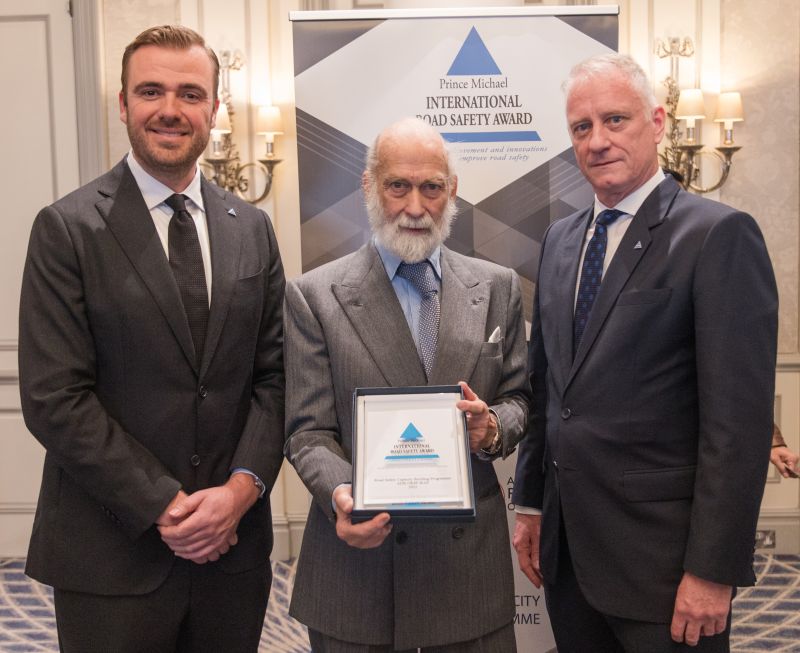
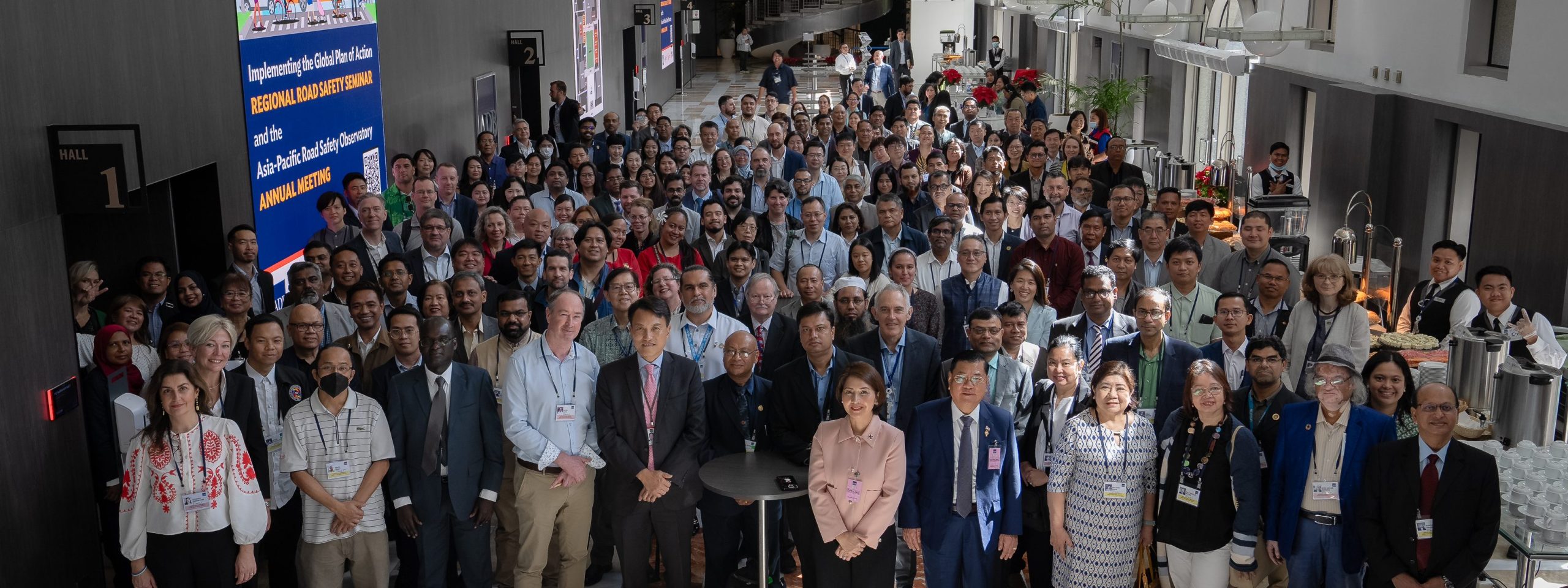
Between 5 and 7 December 2023, the Global Road Safety Partnership (GRSP), together with the Asian Development Bank (ADB) and the Asia-Pacific Road Safety Observatory (APRSO), convened a regional Asia-Pacific road safety seminar at the ADB headquarters in Manila, the Philippines. This flagship event on the road safety calendar reached out to a diverse body of stakeholders including government ministries and national-lead agencies, development banks, road policing agencies, research institutions, private sector organizations, and road safety-focused civil society organizations.
Over 220 participants contributed to a rich agenda that included leading topics in current road safety conversation, such as new funding models, the role of gender in transport planning, road safety legal frameworks, speed management, the role of road safety in child and youth well-being, and much more. For a more comprehensive view of the topics covered in the seminar, please refer to the full agenda here.
The overall aim of the seminar was to give participants a deeper understanding of effective, evidence-based interventions which can be applied towards the goals of the Decade of Action for Road Safety 2021-2030.
“The partnership platform provided by GRSP is unique and this seminar is its embodiment. Here, we found colleagues, potential partners and experts focusing on a topic so close to our hearts, decreasing road trauma and death,” said Benoît de Maynadier, CEO of Muller Automotive.
Of a similar view was Michael Chippendale, Manager, Communications, Membership and Project Support at the GRSP. “As we were organizing this event, we had some conversations discussing if large in-person conferences were a thing of the past – however we firmly believe in the power of partnerships and of relationship-building, so we decided to push ahead. The road safety community responded positively and gathered in numbers for these three days in Manila with a clear purpose, finding innovative and effective ways to continue contributing to the decrease of death and injuries on the roads.”. He added, “We were also tremendously pleased to see many colleagues from the private sector providing their unique perspective. These dialogues are key as no institution alone can turn the tide on this man-made humanitarian disaster.”.
In his concluding remarks, GRSP’s CEO Dave Cliff advises to follow the evidence and invest in what works. You can find the materials he mentions in the video here:
Don’t forget to explore the Good Practice Manuals as well!
From November 5 – 18, 2023, the Johns Hopkins International Injury Research Unit (JH-IIRU) and the Global Road Safety Partnership (GRSP) hosted a range of road safety professionals and road policing leaders in Buenos Aires, Argentina, for the first iteration of the Road Safety Executive Leadership Course (RSELC) and the second iteration of the Road Policing Executive Leadership Course (RPELC).
Both courses fall under the Global Road Safety Leadership Course (GRSLC) suite of courses supported by the Bloomberg Philanthropies Initiative for Global Road Safety (BIGRS).
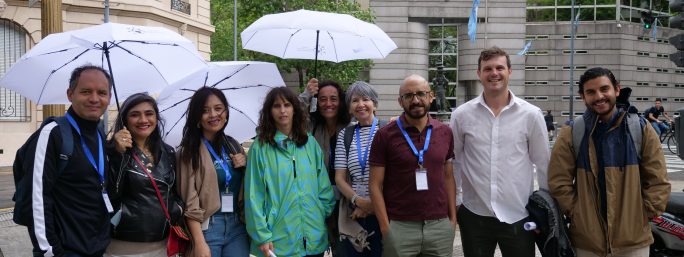
From November 5 – 18, 2023, the Johns Hopkins International Injury Research Unit (JH-IIRU) and the Global Road Safety Partnership (GRSP) hosted a range of road safety professionals and road policing leaders in Buenos Aires, Argentina, for the first iteration of the Road Safety Executive Leadership Course (RSELC) and the second iteration of the Road Policing Executive Leadership Course (RPELC).
Both courses fall under the Global Road Safety Leadership Course (GRSLC) suite of courses supported by the Bloomberg Philanthropies Initiative for Global Road Safety (BIGRS).
Twenty-seven road safety leaders from five countries—Argentina, Mexico, Colombia, Brazil, and Ecuador—participated in the RSELC and engaged in interactive sessions geared to enhance their competencies in leading change to enhance road safety, information sharing, brainstorming, and establishing effective collaboration.
Experts from JH-IIRU and GRSP facilitated various sessions, with external speakers joining in throughout the week. Invited facilitators included global experts and leaders from within the region such as Ricardo Pérez Núñez from the Pan American Health Organization (PAHO), Adriana Jakovcevic from the World Resources Institute (WRI) Brazil, Veronica Raffo from the World Bank, and Roberto Cláudio Rodrigues, former mayor of the Brazilian city of Fortaleza.
The course was designed and implemented with the Latin American context in mind to enhance the participants’ capacity in evidence-based approaches, decision-making processes relating to policy and programme implementation, multisectoral collaboration, effective resource utilization, and data collection and use.
Additionally, the RSELC included a walking tour led by officials from the city of Buenos Aires and staff from WRI. The facilitators and the participants explored three different bike paths and discussed surrounding infrastructure from the safe systems perspective to make roads safe for all road users.
“The course gave me plenty of ideas to implement in my city. It gave me plenty of ideas to boost the steps we have been taking to strengthen road safety and safe mobility,” explained Karina, Metropolitan Director of Active Mobility of the Ecuador’s Ministry of Mobility.
The following week, the RPELC welcomed 33 road policing leaders from Latin America for a week of discussions and sessions on procedural justice, effective road policing leadership and integration, tasking and coordination, and intelligence-led policing. The sessions were facilitated by GRSP’s Road Policing Capacity Building team, with the help of the International Association of Chiefs of Police (IACP) and Edgar Zamora from the International Road Assessment Programme (IRAP).
With the support of the Body of Traffic Agents of Buenos Aires, the attendees also participated in a series of hands-on activities. They analyzed and explored crash and braking distance scenarios and speed, drink driving, and motorcycle checkpoints.
“The RPELC will be very useful for our work, not just for me as a participant of the course, but for the traffic officers of Buenos Aires. Gaining knowledge of the Safe Systems approach helps us grow as an organization; it helps us continue to be on the path of professional road safety and mobility,” shared Leo, General Coordinator of the Body of Traffic Agents at the Urban Mobility Monitoring and Management Center of Buenos Aires.
The JH-IIRU and GRSP teams are grateful to Bloomberg Philanthropies and BIGRS partners for their immense support in the back-to-back delivery of the courses. Moreover, we wholeheartedly congratulate every RSELC and RPELC 2023 graduate and thank them for their constant engagement and dedication throughout the days of intense learning in Argentina.
Find more content on the courses using these hashtags: #RSELC2023 and #RPELC2023.
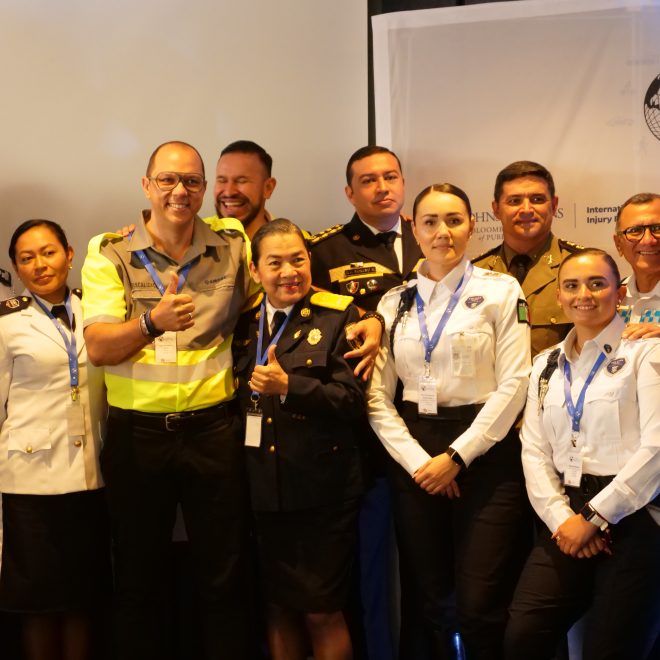
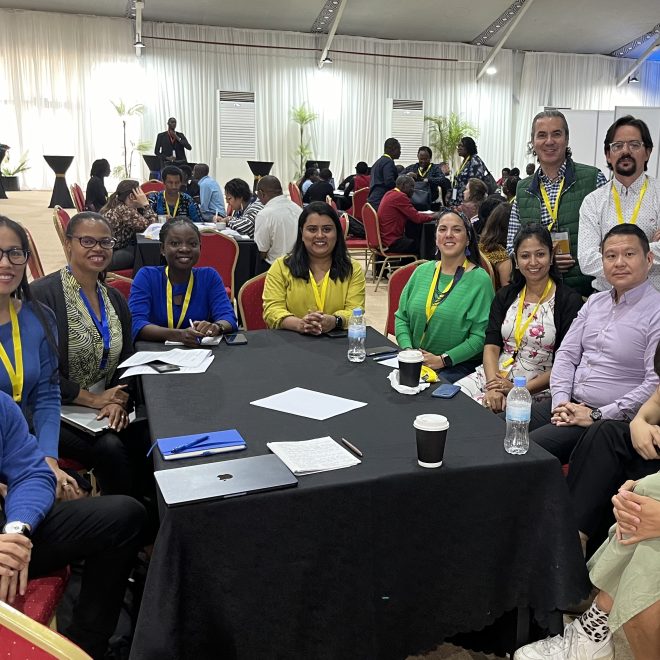
From 16-19 October, the Global Road Safety Partnership’s (GRSP) Botnar Child Road Safety Challenge (BCRSC) team attended the Walk21 Conference held in Kigali, Rwanda. Together with Fondation Botnar, The George Institute (TGI) and BCRSC’s partners, they presented their projects, lessons learned, breakthroughs, approaches, and methodologies in front of an international audience.
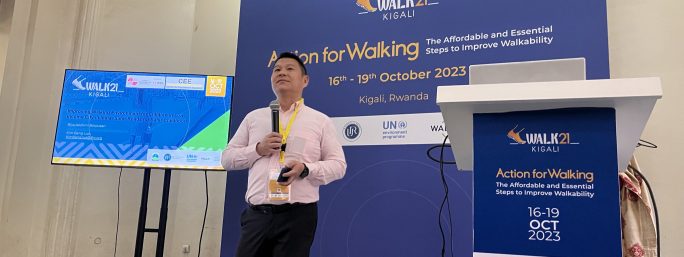
From 16-19 October, the Global Road Safety Partnership’s (GRSP) Botnar Child Road Safety Challenge (BCRSC) team attended the Walk21 Conference held in Kigali, Rwanda. Together with Fondation Botnar, The George Institute (TGI) and BCRSC’s partners, they presented their projects, lessons learned, breakthroughs, approaches, and methodologies in front of an international audience.
The presentations provided an opportunity for audience feedback to improve and replicate the project in other regions. Additionally, GRSP organized a roundtable discussion titled “Moving the child and adolescent safer mobility agenda forward: lessons learned from the five-year Botnar Child Road Safety Challenge”. Fondation Botnar, GRSP, TGI, and the Challenge’s partners discussed key elements and procedures for the management of a successful multi-year global road safety programme.
GRSP’s BCRSC team looks forward to further project developments and fruitful engagements with our partners from all over the world!
The Global Road Safety Partnership (GRSP), in collaboration with The George Institute (TGI), launched the Botnar Child Road Safety Challenge data visualization platform in October 2023. The site collates road safety landscapes, stakeholder engagement, and case studies per participating country, as well as the Challenge’s overall data and statistics to date.
The online tool is open to the public, and its October launch aimed to recognize the International Walk to School Month 2023 and its safety component.
In recognition of the International Walk to School Month, the Botnar Child Road Safety Challenge team launched a data visualization platform.
You will find case studies, road safety landscapes and more! 🎉
Check it out: https://t.co/eYrcRiplP5 #WalktoSchoolMonth | #BCRSC pic.twitter.com/m53mHzKXEP
— Global Road Safety Partnership (@grspartnership) October 4, 2023
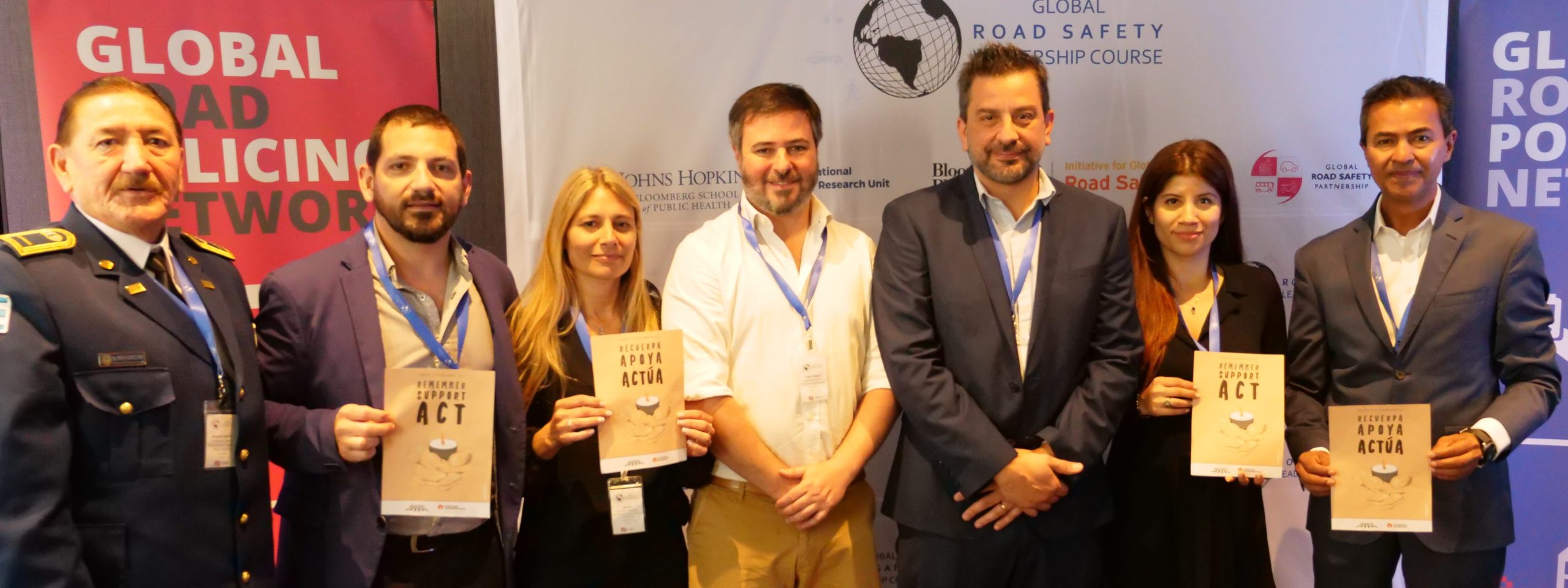
Every third Sunday in November, the road safety community commemorates the World Day of Remembrance for Road Traffic Victims (WDoR) to recognize the profound loss of life derived from road crashes and to emphasize that road crashes are unacceptable.
The WDor 2023 theme calls on people to remember those that have tragically lost their lives or been seriously injured in a road crash. It calls on people to support victims of road crashes and their loved ones, as well as support advocacy efforts. It calls on people to act by motivating individuals and organizations to implement evidence-based interventions and to foster multisectoral collaboration.
The Global Road Safety Partnership (GRSP) continues to acknowledge the importance of the WDoR, and encourages others to learn more about the movement.
#RememberSupportAct
Multiple rescue and extrication teams from all over the world gathered in Lanzarote, Spain, to participate in the World Rescue Challenge 2023 (WRC 2023) hosted by the World Rescue Organisation (WRO) – our esteemed member.
The event was held from 16-21 October in the Puerto del Carmen venue and centered around rescue and emergency professionals demonstrating life-saving rescue skills. The engagement was designed to support their growth, to facilitate information sharing, and to help them learn from other agencies.
Multiple rescue and extrication teams from all over the world gathered in Lanzarote, Spain, to participate in the World Rescue Challenge 2023 (WRC 2023) hosted by the World Rescue Organisation (WRO) – our esteemed member.
The event was held from 16-21 October in the Puerto del Carmen venue and centered around rescue and emergency professionals demonstrating life-saving rescue skills. The engagement was designed to support their growth, to facilitate information sharing, and to help them learn from other agencies.
The Global Road Safety Partnership (GRSP) eagerly anticipates attending more World Rescue Challenges!
Watch the event’s video summary below.
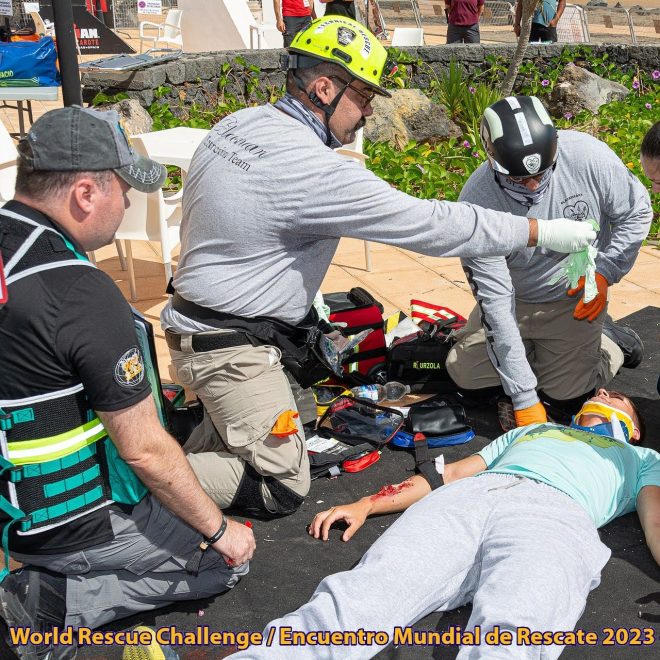
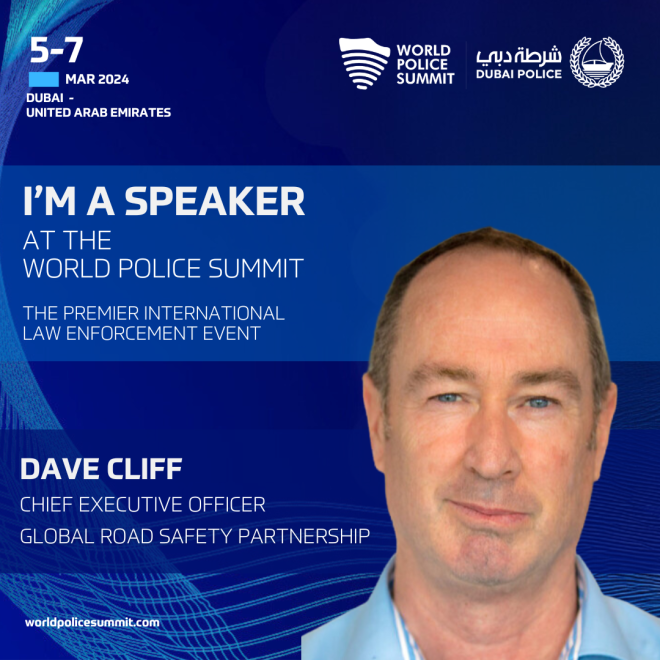
The Global Road Safety Partnership (GRSP) will attend the World Police Summit 2024 in Dubai, United Arab Emirates, this upcoming March. GRSP’s CEO, Dave Cliff, is set to participate as a speaker during the ‘Effective Road Policing: Challenges and Success Factors’ discussion, which will incorporate the participation of ROADPOL’s General Secretary, Sanja Veic, and the World Health Organization’s (WHO) Violence and Injury Prevention Programme Manager, Jonathon Passmore.
The Global Road Safety Partnership (GRSP) will attend the World Police Summit 2024 in Dubai, United Arab Emirates, this upcoming March. GRSP’s CEO, Dave Cliff, is set to participate as a speaker during the ‘Effective Road Policing: Challenges and Success Factors’ discussion, which will incorporate the participation of ROADPOL’s General Secretary, Sanja Veic, and the World Health Organization’s (WHO) Violence and Injury Prevention Programme Manager, Jonathon Passmore.
“It is increasingly important that police spend their time on activities that are ‘proven’ to work. The World Police Summit will offer an opportunity to explain ‘evidence’ based approaches to road policing and activities that are proven to reduce the catastrophic global cost of road crash trauma,” shared Dave Cliff.
The conference will be held at the Dubai World Trade Centre and will gather experts from over 120 countries. Globally recognized organizations such as the International Criminal Police Organization (INTERPOL), the Australian Federal Police, and the Korean National Police Agency will be actively participating as well.
A variety of topics will be explored during the 2024 summit, including legitimacy and confidence in policing, intelligence-led policing, new innovations and technology, cooperation and alliances, and global awareness. Additionally, the summit’s organizing team introduced the World Police Summit Awards, which aim to recognize outstanding contributions within the policing and law enforcement sphere.
The GRSP’s road policing team is looking forward to joining an extraordinary roster of participants in the upcoming summit!
On December 5, 2023, the World Health Organization (WHO), the FIA Foundation, the World Bank Group, and the Global Road Safety Partnership (GRSP), with support from Bloomberg Philanthropies, launched the revised Speed management: a road safety manual for decision-makers and practitioners (2023).
The updated manual includes new case studies, data and guidance for decision-makers on speed limits, modifying roads, in-vehicle technologies, raising awareness of the dangers, and tracking the impact of policies and actions.
This is what our colleagues at the @WBG_Transport had to say about the updated Speed Management Manual!
Once again, we want to thank @WHO, @FIAfdn, @WBG_Transport, and @BloombergDotOrg for collaborating with us on the manual's preparation.https://t.co/V8cYeV2zhX | #RoadSafety pic.twitter.com/xL34DeXj0b
— Global Road Safety Partnership (@grspartnership) December 6, 2023

The Hungarian Road Safety Partnership (HRSP) has been preparing several projects based on different cooperation agreements. Throughout 2023, we established professional and strategic partnerships with public transport entities with a specific focus on enhancing passenger safety.
Additionally, the organization’s website was upgraded, which has facilitated the release of news on our members’ projects, as well as on our activities as a non-governmental organization. To further increase our online presence, we launched the organization’s Facebook profile, and we regularly distribute newsletters targeted at both our existing members and other individuals or local organizations interested in our activities.
The HRSP team aims to further develop our campaigns that target vulnerable road users, and we wish to keep drawing attention to the danger associated with the use of smartphones as pedestrians and as drivers.
Our staff looks forward to embracing the new challenges and adventures ahead!
